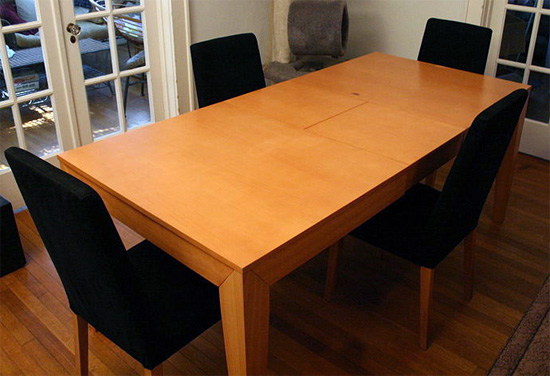Why the Long-Table Approach Leads to Better Designs - Six Revisions |
| Why the Long-Table Approach Leads to Better Designs Posted: 06 Nov 2013 02:00 AM PST The best startups today understand that great design is a team effort. We need to deliver a seamless design and brand experience throughout all the things our customers see and touch. And that’s no easy task when we silo our designers into teams like Marketing and Product Development. At my company, Zendesk, we’ve adopted a long-table approach where the entire design team works at a single communal table.
This means we’ve eliminated silos within our designers. Every designer in our long-table:
What we’ve realized is that the long-table approach also leads to more productive — and happier — designers. Here are five reasons why the long-table approach has worked for us, and why it might work for you too. It’s Easier to See What Everyone is DoingAs startups grow, it’s harder for people to know what everyone else is doing at any given point in time. Designers often have to rely on spreadsheets or project management apps to keep tabs on other design-related projects. Important updates from one group of designers never seem to make it to other groups that could have a positive influence on product and brand developments. With the long-table approach, a designer just has to look across the table to see what someone else is up to. For example, what an early prototype of a web page redesign is going to look like. More Opportunities to GrowIn a typical company, designers often get pigeonholed into certain roles. Also, when you’re doing the same thing, day in and day out, it’s easy to get bored and fall into a creative rut. By sharing the same space with other creative professionals, you’re automatically exposed to different facets of Design, and there are more opportunities to work on different types of projects. It’s important to note here that while designers should be provided the opportunity to dabble in other areas, they should still have ownership over specific areas within the product and the company. This ensures that people are not merely "spot cleaning" for others. Better Collaboration and Real-Time FeedbackWhen you’re all working around the same table, you can get real-time feedback from your peers. The long-table approach also gives designers the ability to have a diverse source of input. A designer can get feedback from other designers who might have a different specialization or viewpoint. In addition, the spontaneous back-and-forth collaboration between designers heightens everyone’s game. Easier Path to ConsistencyIt’s easier to reach that holy grail of design and brand consistency when everyone is in the same physical space and can look over each other’s shoulders. Last year, we undertook a major product overhaul. This task was significantly easier for everyone involved since the entire design team was working in the same space and each individual could see how other branches of the product were being developed. Better Use of Individual StrengthsWith design housed under one space, leaders can easily identify individual skills and allocate resources in more strategic ways. They can, for example, adapt to people’s strengths and interests and form creative work pairings that would not have been obvious if designers weren’t working together in a single collaborative space. Final ThoughtsWhen a startup commits to design-driven innovation, it doesn’t just mean paying top rate for the best designers. More importantly, we’ve also got to instill the right culture and environment that allows Design to thrive. At the core of the long-table approach is a simple premise: Design is never tangential. Design is central to a company’s identity and all the things it does. Related Content
About the AuthorThe post Why the Long-Table Approach Leads to Better Designs appeared first on Six Revisions. |
| You are subscribed to email updates from Six Revisions To stop receiving these emails, you may unsubscribe now. | Email delivery powered by Google |
| Google Inc., 20 West Kinzie, Chicago IL USA 60610 | |


No comments:
Post a Comment